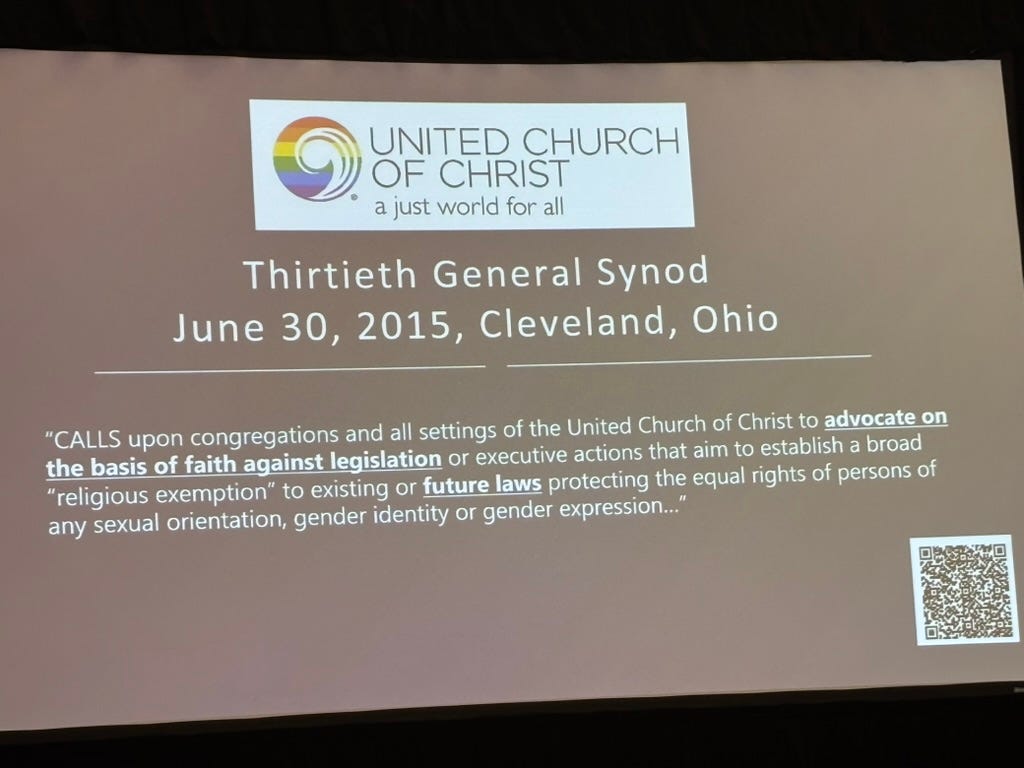Genspect's Cure for Gender Ailments
Spiritual medicine and re-psychopathologization
The international group Genspect has accomplished a remarkable amount in just over four years of existence. Launched in 2021 as “a voice for parents”—a cohort that had been told it was selfish and dangerous to do anything other than affirm their children’s desires for psychological and medical affirmation of gender identity—it now advocates for “a healthy approach to sex and gender.” They’ve supported sites like PITT—in which parents get to tell their sides of the story—and Stats for Gender, which counters the zombie statistics oft-repeated in both academic and mainstream media spheres. They’ve offered reduced-rate therapy for detransitioners, and pitched themselves as alternatives to the World Professional Association for Transgender Health, or WPATH.
While the far left has painted the group as far right, per founder Stella O’Malley, Genspect “talks to everyone”—a policy I support. Yet it has also felt at times that the group, which includes many non-Americans, doesn’t quite understand the ferocity of American politics, in which credibility is often determined by whom you’re talking to. Bipartisanship used to be the goal here. Now, it’s blasphemy.
Two-and-a-half years ago, Genspect leaders decided to hold conferences in the same towns as WPATH or its various local iterations, EPATH—the European wing—and USPATH. I’d gone to the first Genspect conference, in Killarney, Ireland, and had also attended the concomitant EPATH conference. At EPATH, I watched clinicians present their data, which included points on graphs indicating people getting worse. At Genspect, I heard the people who represented those data points talk about how they’d been harmed. It was an experience that gave me new resolve to try even harder to alert my fellow liberals to what I described then as the medical scandal of the century. (Still working on that mission.)
This year’s conference took place in Albuquerque—a city with only a single direct flight from New York City per day, but otherwise a very nice spot. Over the years, I’d found that the conference combined respectable and compassionate people, like, say, Steven Levine, along with some big names who had gone off the rails, like, say, James Lindsay. By 2025, it had begun to feel as if more and more in the gender-critical crowd had gone off the rails, too, in terms of their support for Trump—a subject I will be writing more about.
By that, I mean: many who abandoned the Democrats for Trump because of his promise to crack down on gender identity are blinding themselves to the horrors of what else is happening in our country. They’re choosing the short-term band-aid of bans and executive orders over longer-term solutions, and sacrificing political and legal norms in exchange.
So I came to the Genspect conference expecting that I’d encounter more of that vibe.
On the first day, I was pleasantly surprised. The always professional Dr. Lisa Littman shared information about her long-term study of gender dysphoric youth, The Adolescent and Young Adult Gender Dysphoria Outcomes Study (AYAGDOS)—a study that will benefit from the participation of those who believe deeply in gender identity and have found transition to be positive. (Please share it with all the families with trans kids or gender dysphoric youth you know.)
Dr. Lisa Duval spoke eloquently about the overlap between gender issues and personality disorders, and how trans identities may be a “maladaptive coping mechanism in response to the fears of growing up.” Soren Aldaco’s presentation suggested how social media might actually be transforming the way young people form their social identities. Mariah Burton Nelson revealed the wins from the fight to save women’s sports.
Now, there were plenty of fiery speakers that first day, and even more on the second. At times, the bland meeting room felt like a church revival tent, with speakers diagnosing spiritual ailments and suggesting that God was the answer; I look forward to seeing the systematic reviews of that evidence! To an atheist like myself, believing in god and believing in gender identity are the same thing: blind faith in a feeling without evidence. And though the conference had multiple viewpoints, the conservative Christian view was certainly dominant. Still, as Cori Cohn pointed out in his excellent presentation, places of worship have become part of a church-to-clinic pipeline themselves.
The conference theme was “Live Not by Lies—Conversations for a Culture in Crisis.” That phrase originated with Russian writer and Nobel laureate Aleksandr Solzhenitsyn’s 1974 essay. He wanted his fellow Soviets to resist state pressure to participate in their lies—independence and freedom through soothsaying.
But in 2020, a journalist named Rod Dreher co-opted the phrase for his book Live Not by Lies: A Manual for Christian Dissidents. He was urging fellow Christians to stand up to the West’s “soft totalitarianism,” which some might recast as wokeness, or social pressure to conform to lies like, say, everyone has a gender identity and some people are born in the wrong body.
But since the rise of Trump’s second regime—oh, sorry, administration—totalitarianism has hardened again. Trump banned transgender people from the military and moved to restrict their Second Amendment rights. His people don’t just want to stop teaching gender identity to kids, or performing “gender-affirming” mastectomies on teens, procedures for which there is no solid evidence. They may be laying the groundwork for something much more pernicious.
In the wake of Charlie Kirk’s assassination, far-right conservative Christian groups, like the Heritage Foundation’s Oversight Project, have called for designating “transgender ideology-inspired violent extremism” or TIVE, as a form of domestic terrorism. Considering there have been but a handful of trans mass shooters or assassins, and the greatest perpetrators of domestic terrorism appear to be white men—dare I say, cis white men, a term I use only to offer an alternative to the far right’s designation—this sounds like a kind of mass hysteria. It may pave the path to deprive trans people not of “trans rights”—which were special privileges, to remake society according to a subjective definition of sex and gender—but of civil rights.
In other words, shit is getting scary, and almost nobody in the gender resistance is talking about it or suggesting that the correction to the overcorrection is overcorrecting, too.
During the conference, Genspect Canada director Mia Hughes gave a talk about “extreme overvalued beliefs,” and subsequently sent out a press release calling for the “Re-Psychopathologization of Transgender Identification.” Here’s the short text in its entirety:
Genspect strongly urges the recognition of transgender identification as a pathological condition characterized by an Extreme Overvalued Belief.
An extreme overvalued belief is a rigid, non-delusional conviction, shared and reinforced within a culture or subculture, defended with passion, and experienced by the individual as entirely rational. Over time it strengthens, resists challenge, and can drive powerful — even harmful — actions in its service.
The 2010 declaration by the World Professional Association for Transgender Health to “de-psychopathologize” gender variance was not based on scientific discovery but on political advocacy. This campaign has caused catastrophic harm by removing essential psychiatric guardrails, fueling a social contagion, and exposing vulnerable people to experimental medicalization.
Re-psychopathologization is not a call to re-stigmatize or marginalize individuals who identify as transgender. It is a call to restore compassion and clarity: to understand that this condition is pathological, not innate; to treat it as an all-consuming fixation requiring careful, appropriate, ethical psychological intervention, and to prevent the unchecked spread of this harmful belief.
Genspect’s re-psychopathologization campaign is not motivated by politics, but by truth, and it is grounded in a long-established psychiatric concept—the overvalued belief. Only by returning to this clinical understanding of transgender identities can we protect children, adolescents, and vulnerable adults and offer genuine help to all those consumed by this belief.
We call upon governments, medical associations, and mental health bodies to review their policies and practices and update them accordingly. To quench the flames of this contagion and safeguard the next generation, we must cease colluding with this dangerous, overvalued belief and view transgender identification through the appropriate lens of the extreme overvalued belief.
This did not go over well on Bluesky, to no one’s surprise.
But I heard many others express concern about the campaign’s wording and its potential interpretations, especially in light of the Trump administration’s aforementioned moves. Conspiracy theories emerged, including that Genspect was colluding with the FBI to mark all trans people as terrorists.
So I asked Hughes to clarify, which she graciously agreed to do on the phone between flights. She told me that she wasn’t using “pathology” as a moral judgment, but rather as a way to stop saying it’s perfectly normal to want to cut off healthy body parts in order to appear as someone you’re not. To call that what it is—a mental illness—is the key to getting people the help they need. Most importantly, she told me, the point of pushing this understanding now wasn’t to collude with the right wing’s method of handling gender identity ideology, but “precisely because it’s shifting so far to the extreme,” she told me. “I know that we’re moving into ‘trans is a mental illness,’ and I want it to be done in the most compassionate way for all the innocent people caught in the middle.”
Noting that many people, even from the so-called TERF side, seemed to find the policy suggestion extreme, Hughes added: “They need ethical, appropriate, compassionate psychotherapeutic support to understand that the conclusion they’ve come to—if they are coming to the conclusion that the identity is healthy and that the body needs to be fixed—that is the wrong conclusion. [The policy is] not to stigmatize, it’s not to marginalize, it’s not to bring any kind of discrimination down upon this community. It’s just the truth matters, and denying the existence of their psychiatric disorder doesn’t help them.”
“Extreme overvalued belief,” of course, is so broad that if it itself were the mental illness, most of us would be marked mentally ill. But it’s not the belief itself, but the method of treating it, that Hughes wants to change. “The pathological behavior is seeking irreversible, drastic, health-destroying medical interventions for…an identity.”
Whether people will see it this way, or whether the far-right coalition hell-bent on destroying not just the gender identity belief system but perhaps punishing those who subscribe to it—that all remains to be seen.






Lisa, I encourage you to go to SEGM if you want to engage with clinicians and researchers. I was in Berlin a few weeks ago and I’m sure you would have approved of the tone. Genspect is for parents. And if you are going into the parent space then you’d better be prepared for the rage. They are mostly former Democrats that have had their trust in mainstream institutions violated by gender ideology. The industrial scale gaslighting that these people have endured is hard to comprehend. I promise you that those parents are out of f’s to give about Trump.
Sorry I missed you at the conference, Lisa. Re, "re-psychopathologization" being a terrible message: I just said the same thing to my colleagues at DIAG. Any phrase that includes the term "psychopath" is going to scare, confuse, or anger 99% of people who hear it. And any slogan that has to be explained at length is a bad slogan. Plus, it's hard to say!